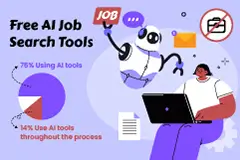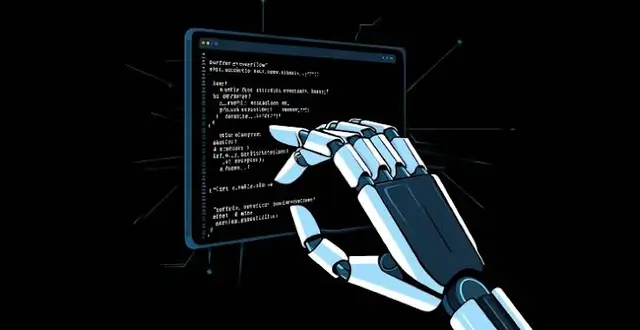How Ordinary People Can Avoid Becoming Obsolete in the Age of AI
“AI won’t replace you—but someone using AI will.”
Imagine this:
Sarah, a freelance writer in Kenya, just lost a client to a competitor who uses ChatGPT to draft content 10x faster.
Raj, an accountant in India, watches AI automate 80% of his routine tasks overnight.
Maria, a retail manager in Brazil, scrambles to learn data tools her company demands now to avoid being eliminated.
This is not creating anxiety. This is what is happening in 2025
A McKinsey study predicts that by 2030, nearly 30% of work hours could be automated however,the World Economic Forum predicts that over 85 million jobs may be displaced by 2025, while 97 million new roles could emerge

The future belongs to ordinary people who know how to pair their humanity with AI — not just tech elites.
If you’ve ever thought:
“Do I need a coding degree to stay relevant?”
“Will a robot take my job?”
“Where do I even start?”
Then this guide is for you.
🚨Which Industries Are Most at Risk of AI Disruption?
To understand how ordinary people can avoid being eliminated by ai, it is necessary for us to analyze which industries are most likely to be eliminated.
AI is shaking up just about every industry—but some are feeling the heat more than others. Is your field one of them?
Admin & Office Support
Reality: Automation tools like ChatGPT, Microsoft Copilot, and Excel macros are already replacing basic data entry, transcription, and routine reporting roles.
✅ Career Change Options (realistic & growing):
Project Coordination / Operations Assistant – still in demand, especially remotely
Digital Marketing Assistant – growing need for content editing, basic SEO
Virtual Assistant – broader scope now includes scheduling, social media, basic design
💡Skills You Can Learn Quickly:
Google Workspace, Notion, Trello (task & project management)
Canva (easy-to-use graphic design tool)
Prompt engineering & automation with ChatGPT and Zapier
🎓 Legit Learning & Income Platforms:
Coursera – Google Project Management, Meta Social Media Marketing
LinkedIn Learning – Admin, time management, and virtual work skills
Upwork, Fiverr– In-demand admin support freelance work
Retail & Customer Service
Reality: AI chatbots (e.g., Intercom, Zendesk AI) are handling millions of tickets. Amazon Go and self-checkout tech reduce demand for cashiers and floor staff.
✅ Career Change Options:
E-commerce Support – assisting with product listings, returns, etc.
Social Media Management – especially for small businesses
Customer Success Specialist – still human-centric but tech-augmented
💡Skills You Can Learn Quickly:
Shopify, Etsy store setup
Copywriting & ad writing basics
Learning to “train” or monitor AI chatbots
🎓Legit Learning & Income Platforms:
Skillshare – Social media, marketing, branding
HubSpot Academy – Free certified courses in customer service & CRM
Printful, Etsy – Side hustle opportunities in print-on-demand
Transport & Warehousing
Reality: Self-driving technology (e.g., Waymo, Aurora) is testing on highways. Amazon Robotics, Ocado, and other logistics firms use smart warehousing systems to reduce manual labor.
✅ Career Change Options:
Supply Chain Analyst (entry-level) – growing need for planners who understand data
Inventory or Operations Coordinator – hybrid roles needing basic tech tools
Remote Logistics Assistant – assisting with scheduling, inventory, and reporting
💡Skills You Can Learn Quickly:
Basics of Excel/Google Sheets + formulas
Intro to supply chain & logistics (e.g., from MITx or Arizona State)
Software like SAP (entry-level), Oracle NetSuite, or QuickBooks
🎓Legit Learning & Income Platforms:
edX – MITx: Supply Chain Fundamentals
Coursera – Arizona State: Supply Chain Management
Jobspresso – Remote tech & operations jobs
Freelancer – Admin/logistics freelance gigs
If you are not working in the above-mentioned industries, then congratulations, you have a safe career for the time being. However, you also need to keep up with The Times in the AI era, because AI is not only replacing some positions but also creating new career paths, especially for those who are willing to improve their skills.
High-Value Skills You Can Learn
You don’t need to become a coder to thrive in the AI era. What you do need is adaptability, emotional intelligence, and the ability to work alongside AI — not against it. Here are the skills that will keep you valuable and irreplaceable:
In-Demand Human-Centered Skills
Emotional Intelligence – Essential in leadership, sales, and mental health fields.
Critical Thinking & Problem Solving – Something no algorithm can truly replicate.
Creativity – From storytelling to design and marketing strategy, creativity is uniquely human.
Digital & AI-Friendly Skills Anyone Can Learn
Prompt Engineering – Learning how to talk to AI tools like ChatGPT to get better results.
Data Literacy – Understanding and interpreting information, not just crunching numbers.
Digital Communication – Managing tools like Zoom, Slack, Canva, and AI-powered design platforms.

Actionable Strategies to Stay Irreplaceable
After understanding what capabilities are important in the AI era, the next step is to formulate strategies to keep yourself irreplaceable.Here are some strategies might be helpful to you:
Double Down on Your HUMAN Edge
Identify where Critical thinking ,Creativity and Emotional intelligence strengths already exist in your work — and find ways to highlight them.
Get "AI-Literate"
AI doesn’t mean learning how to build it — it means knowing how to use it wisely.
What AI can and cannot do (e.g., ChatGPT writes emails but can't feel customer anger)
How to spot AI bias (e.g., “Why did this hiring tool reject qualified women?”)
Free Starter Tools and platforms:
Tools:
ChatGPT / Gemini: Draft emails, brainstorm ideas
Canva Magic Write: Create social posts in seconds
Otter.ai: Transcribe meetings while you listen
Top Free Platforms :
YouTube (Search: “AI tools for beginners”, “prompt engineering tutorial”)
Tip: Even 30 minutes a day can build momentum. Set a simple routine, like watching one learning video during lunch or after dinner.
Reinvent Your Current Role
Ask yourself one question daily: “What repetitive task can I offload to AI today?”
Examples:
Teacher: Auto-grade quizzes → Focus on struggling students
Salesperson: AI researches leads → You build personal connections
Small Business Owner: Chatbot handles FAQs → You craft growth strategies
Use AI as your assistant, not your replacement.
🤝Build Your HUMAN Network
AI lacks intuition. Your network doesn’t. Join local professional groups helps a lot.
Remember: Machines find data. People find opportunities, so our relationships and soft skills are more important than ever — they’re the bridge between technology and real-world impact.
3 Mindset Shifts to Beat Obsolescence
1. Be Adaptable, Not Perfect Pivot fast is better than know everything. Staying flexible is your greatest asset.
2. Focus on Problem-Finding AI solves problems — but only if you define the right ones first.
3. Ethics Are Your Armor Challenge biased AI outputs. Your judgment matters in a world increasingly shaped by algorithms.
It is important to formulate strategies, but it makes sense to take action and share these strategies. Small steps compound. The key is to start, rather than putting this post in your favorites and then forgetting it.
You’re the Future
AI is a powerful tool. But you’re the craftsman. Nurses will heal with empathy no robot can fake. Artists will move souls with stories algorithms can’t create. You’ll thrive by doing what AI never can: being human. So this week, pick one strategy from above. Experiment, Adapt, Own your future. Because in the age of AI, your greatest asset is still you.


 More Popular Reports
More Popular Reports
-
 Outsmart Inflation in 2025 Without Sacrificing Your Lifestyleinflation-proof money strategies 2025 best fintech apps for saving cashback tools for smart shopping beginner investment apps 2025 how to fight inflation without cutting back automate savings apps
Outsmart Inflation in 2025 Without Sacrificing Your Lifestyleinflation-proof money strategies 2025 best fintech apps for saving cashback tools for smart shopping beginner investment apps 2025 how to fight inflation without cutting back automate savings apps -
 5 Free AI Job Search Tools That'll Get You Hired Faster, Even With Zero Experienceai job search resume builder ai interview ai prep free job tools usa jobscan alternative remote job tips
5 Free AI Job Search Tools That'll Get You Hired Faster, Even With Zero Experienceai job search resume builder ai interview ai prep free job tools usa jobscan alternative remote job tips
 Instagram
Instagram

 Share
Share

